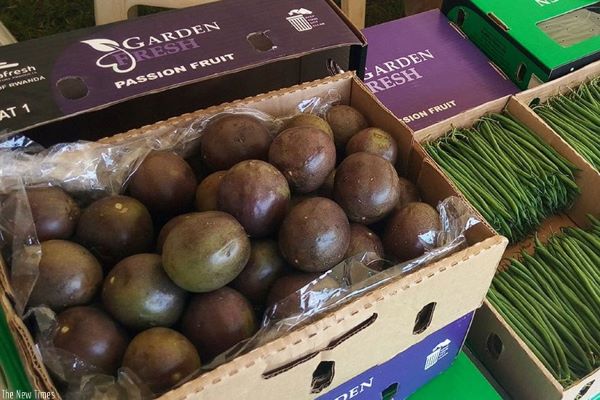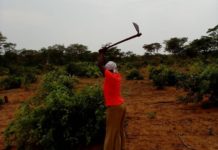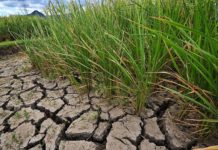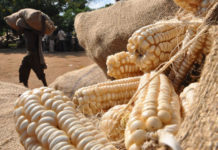
The government of Rwanda has signed $62.89 million (approx. Rwf68.4 billion) finical agreement with the International Fund for Agricultural Development (IFAD) that will see small-scale farmers in the country benefit from a project aimed at building their capacity in export-driven value chains.
The project dubbed Promoting Smallholder Agro-Export Competitiveness Project’ (PSAC) in Rwanda, will run through 2028 and will help the smallholders to practice climate-resilient farming to sustainably produce for export markets.
According to the country’s Ministry of Agriculture and Animal Resources, the project will further increase the incomes of the rural poor by supporting inclusive and sustainable agri-exports value chains.
“We expect an increase in income as a direct result of the increased volume and value of targeted commodities exported from Rwanda,” said the ministry’s statement in part.
Some of the areas the project seeks to address include better crop management practices, access to advisory services, and market and financial services for the smallholders.
Tea, coffee and horticultural products are some of the selected value chains which currently present strong opportunities as the sectors enjoy an investment-friendly environment and favourable agro-climatic conditions.
Small-scale farmers
The small-scale farmers targeted by the project are those who are vulnerable, have limited land of less than 0.5ha, and depend on crop production, seasonal labour or external support.
Also targeted are smallholders who are market-oriented producers and have on average of 0.5 ha or more, and have moved beyond subsistence farming, or are owners of small and medium-scale enterprises.
In this, the main direct beneficiary group will be composed of 56,695 households (approximately 255,128 household members, of which 73,704 persons will receive direct project services), according to the ministry’s estimate report.
14 districts out of 30 across Rwanda will be targeted with western and southern regions being the favourites since they have the most vulnerable rural populations.
Some of the beneficiary districts include Karongi, Nyabihu, Rutsiro, Nyamasheke, and Ruhango, Nyaruguru, Huye, Nyamagabe, and Nyanza in Southern Province; Rusizi in Western Province; Musanze and Rulindo in Northern Province and Bugesera and Rwamagana in Eastern Province.
The fund allocation
Investments to enhance climate-smart production and productivity of selected export-driven value chains was allocated approximately $38.35 million.
The fund will be used to support smallholder farmers’ production and productivity as the project will focus on the expansion and rehabilitation of plantation areas of 8,242 ha of coffee, tea and horticulture while adopting innovative climate-resilient technologies and practices.
Another allocation is $17.94 million meant for enabling a business environment along selected export-driven value chains.
It will also enhance competitiveness and sustainability by improving smallholder value chain actors’ access to advisory services, sustainable markets, and financial services.
According to December 2022 Rwanda’s National Agricultural Export Development Board (NAEB) report, the country’s annual agricultural export revenues increased by 45 per cent to over $788.7 million (about Rwf859.5 billion) in 2022, from $543.1 million (about Rwf591.8 billion) in 2021.








